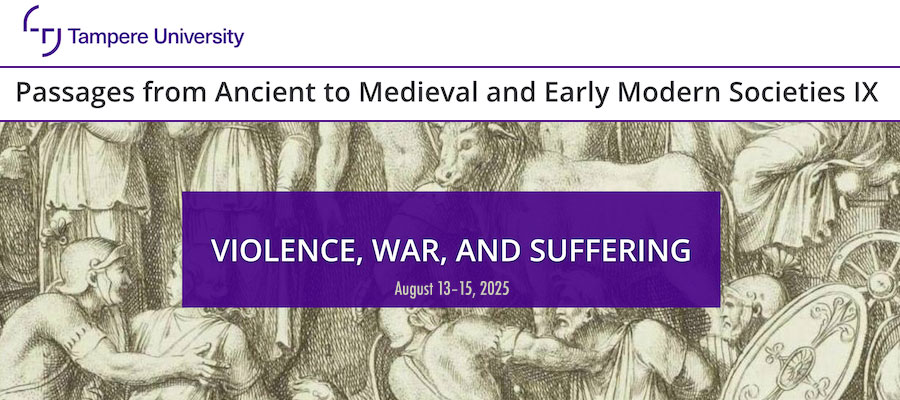Violence, War, and Suffering, Passages from Ancient to Medieval and Early Modern Societies IX, Tampere, August 13–15, 2025
The Passages conference series (since 2003) has focused on society and the history of everyday life in the premodern world. Our aim is to bring together scholars from diverse fields to study longer term historical continuities and changes between the classical, medieval, and early modern worlds.
The next conference focuses on the emotions and suffering associated with violence. The aim is to understand what kinds of emotional and affective responses, and experiences violence and war cause in individuals, families, and other communities. While premodern violence as such has been studied from various viewpoints, we encourage perspectives considering comparisons between eras and cultures. Emotions, experiences, and everyday life provides novel viewpoints to approach these themes. The conference combines the latest research on emotions and experience with social and cultural historical approaches to the ancient, medieval, and early modern world.
We are particularly interested in what people feel in violent situations, and what the communal responses were to such experiences. We particularly welcome papers, which have a sensitive approach to social differences: gender, status, and ethnicity. We also welcome research on the processes of peace and reconstruction.
The tentative topics include but are not limited to:
- the feelings and emotions related to violence and war
- resilience, courage, and mercy
- everyday strategies of coping with threat
- identity building and communities of experience
- trauma and communal memory of violent situations and experiences
- humour and other positive feelings as survival strategies
- active or passive cultures of sympathy
- gendered experiences of violence and suffering
- children, the elderly, and other marginalized groups
The conference series covers chronologically, geographically and disciplinarily all branches of Classical, Byzantine, Medieval and Early Modern Studies. Most preferable are contributions that have a comparative and/or interdisciplinary viewpoint or that focus on a longue durée perspective.
